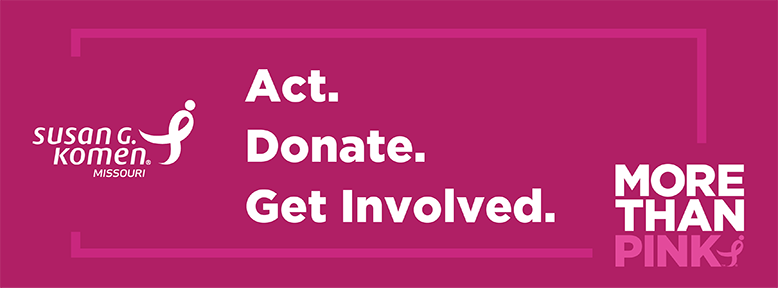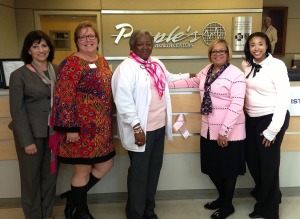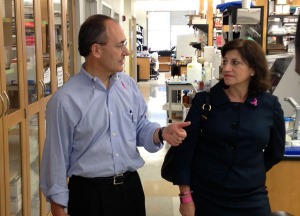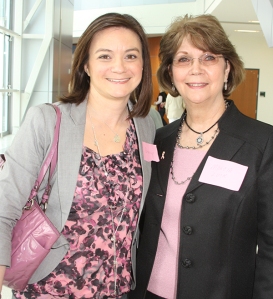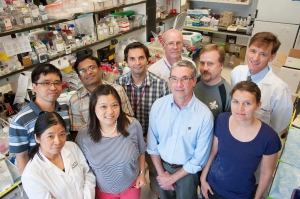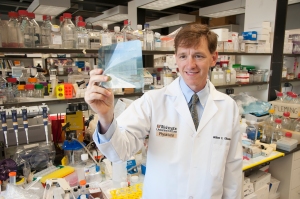Guest Writer: Dede Hoffmann, Komen St. Louis Board President
During this special time of year, I like to reflect on all I’m thankful for. As a 12-year, two-time breast cancer survivor, I am fortunate to count my many blessings.
While some of us are blessed with good doctors, health insurance and support systems, many breast cancer patients are not.
Imagine a woman’s fear when she feels a lump in her breast but knows she cannot afford a mammogram.
Imagine the devastation when a woman is told she can’t obtain life-saving breast cancer drugs or when she can’t pay for the bus ticket to get to her treatment.
From medications to treatment, research to support, Susan G. Komen dollars bring hope to patients and inspiration to researchers.
Komen St. Louis funding supports local organizations that deliver life-saving breast health services – including free mammograms and navigation through the health care system – to those who may not otherwise have access due to low income, lack of insurance or other barriers.
Komen-funded researchers in St. Louis are working to develop personalized breast cancer vaccines, to develop drugs that will prevent breast cancer recurrence, and to determine a treatment for triple negative breast cancer.
Komen dollars make a difference in the lives of breast cancer patients every day.
Because so many need our help, I’m asking you to help Komen St. Louis by contributing to our 2013 Annual Giving Campaign. Your donation will make a difference to women, men and families in our community facing a breast cancer diagnosis.
Our mission – to save lives, empower people, ensure quality care for all and energize science to find the cures – has never been more important. And we can’t do this without your support. Please make a one-time or monthly donation today.
Susan G. Komen has touched nearly all of our modern approaches and treatments for breast cancer. Even my own survivorship depends on continued support of breakthrough research.
With your support, Komen St. Louis can continue to provide real-time help to those in our community facing the disease.
With your support, Komen can continue our quest in the fight against breast cancer.
